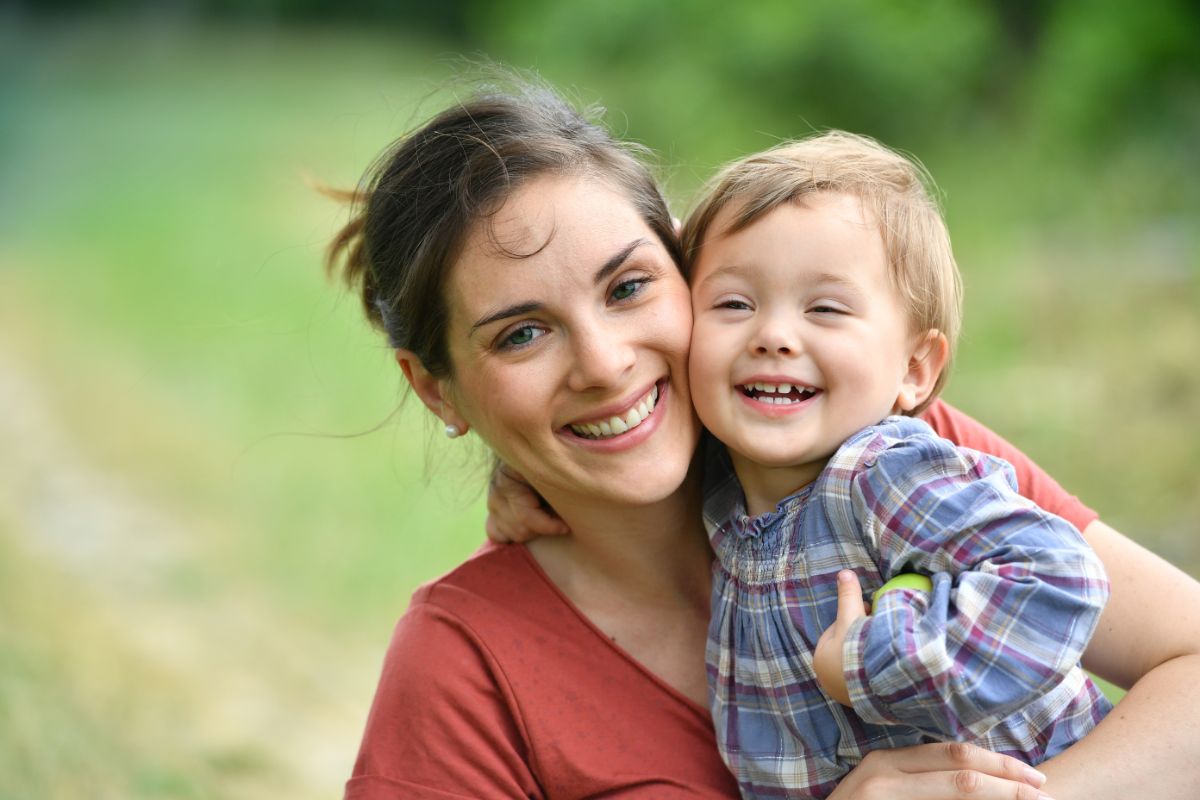As a parent, there are plenty of questions that will come up about their health and development. Seeing those first tiny teeth coming in can be especially exciting! Your child’s baby teeth give them new ways to speak and eat while serving as placeholders for their permanent teeth. When your child reaches this milestone, it’s time to start thinking about building healthy habits. At Scott Edwards DDS, you can find all of the answers you’re looking for to give your child the best care possible. Let’s take a closer look at what every parent should know about baby teeth and caring for their child’s smile.
Baby teeth basics
You might be surprised to find out that babies aren’t born without teeth. That’s right! Babies are born with about 20 baby teeth hidden below the surface of the gums, just waiting to erupt. Your baby will start teething around six months of age, and teeth will continue to erupt for up to three years.
While there is a general order in which baby teeth erupt, every child is unique, so if they deviate from “the norm,” you don’t need to worry! However, if you have any questions about your child’s baby teeth, our team in East Memphis or Midtown is always happy to help.
Baby teeth are sensitive
Baby teeth are susceptible to cavities and tooth decay. Compared to permanent teeth, baby teeth have a very thin layer of enamel, making them more prone to decay. This can even cause infections in the permanent teeth below the surface.
Babies aren’t born with the bacteria that cause cavities to form but are transferred from parents to children. The best way to help avoid this is to maintain consistent oral hygiene for yourself, too! Speaking of brushing, this brings us to our next point.
Brushing baby teeth
The best time to start brushing your baby’s teeth is when the first tooth erupts. It may seem early or unnecessary since they aren’t putting those tiny chompers to use just yet, but brushing is essential for healthy baby teeth! Brushing your baby’s teeth twice a day is the best way to fight tooth decay and teach them healthy habits for their oral health. Here are a few tips for helping your child brush:
- Use a pea-sized amount of fluoridated toothpaste (unfluoridated for children who haven’t mastered spitting the toothpaste out yet)
- Use a soft-bristled toothbrush
- Show them how to hold the toothbrush at a 45-degree angle
- Model brushing all surfaces of the teeth
- Practice flossing from day one
- Brush your teeth together and be available!
Your child will likely need some help brushing their teeth effectively until they’re around eight years old. When you brush and floss your teeth together regularly, your child will develop a positive attitude towards dental hygiene and a healthy smile!

Your child’s first dental visit
Once you have a solid understanding of caring for your child’s teeth, the next step is scheduling their first dental appointment. Your child should visit the dentist for the first time when their first tooth erupts or by the time they are one year old. At your first visit to Scott Edwards, DDS, your child will be welcomed and made to feel as comfortable as possible. We understand that a first trip to the dentist can feel overwhelming for your child, and our team is experienced in providing a positive experience from start to finish.
After your child has a quick tour of the office, we’ll get started! Our dental hygienist will talk to them about what we’re doing every step of the way. We’ll brush their teeth and make sure everything is developmentally on track. This is a pain-free visit and focused on getting your child used to the dentist and cleaning their teeth.
Following their cleaning, Dr. Edwards or Dr. Prince will take a closer look at your child’s teeth and talk with you about any questions or concerns you may have. We’ll take as much time as you need to help you feel confident caring for your child’s smile. After your child’s first visit, they should have regular check-ups every six months or as recommended by your dentist.
A balanced diet is essential for healthy baby teeth
Giving your child a healthy diet is one of the best things you can do for their baby teeth! Sugary foods contribute to tooth decay, so it’s essential to limit the number of sugary foods your child eats. Nearly all foods have at least a small amount of sugar, so it’s important to brush your child’s teeth after every meal. If you can’t brush right away, have them rinse their mouth with water to rinse away any leftover food particles.
Avoid harmful habits
Helping your child avoid harmful habits is essential for the health of their baby teeth. Here are the most common oral habits that we see in our East Memphis and Midtown offices:
Nighttime bottle use
When a child goes to sleep with a bottle, their teeth are exposed to whatever liquid they’re drinking for extended periods.
Extended pacifier or thumb sucking
It’s common for children to suck their thumb or a pacifier for comfort, but if this habit persists for too long, it can cause damage to their permanent teeth. If your child uses a pacifier, give them a clean one every time. It is recommended to stop this habit by age three.

Build healthy oral health habits with Scott Edwards, DDS
Even though your child will lose their baby teeth, taking care of them is crucial for the long-term health of their smile. At Edwards, DDS, our team will help prepare you and your child for healthy oral habits from day one! If you’re ready to schedule your child’s first visit, we would love to meet you! Contact our East Memphis or Midtown office to schedule an appointment today.
